Fans have been waiting to hear him. For the past two hours, fans have been lined up down the street, getting checked by security, grabbing a drink, and feeling mounting excitement.
Then—with a building sweep of violins—Kishi Bashi is finally here, and he’s not going to disappoint. Bashi gets front and center with the song “Violin Akai” from his most recent album, Kantos. “I have feelings,” he sings, and the audience is ready to share them with him.
His performance is joyous and golden, punctuated by confetti streaming from the ceiling and lively interactions between Bashi and his backing band members. He’s joined by the members of Sweet Loretta and “pioneer of psychedelic banjo music” Mike Savino, who add energy on top of backing music to his performance—each one with a presence of their own and interacting like old friends with each other.
The performance is a self-declared celebration of joy and life, but that doesn’t keep the poignant nature of Bashi’s music and his embrace of the complex range of emotions from coming through. Bashi explores heartbreak, romantic and otherwise, throughout the concert. The spectrum of human experience is felt not only through the music but also when Mike Savino takes a few moments to talk about his hometown of Asheville, North Carolina, which has been devastated by Hurricane Helene. He points the audience to BeLoved Asheville for donations to help rebuild.
As the entire band is assembled, Bashi starts “Chiba Funk,” in which he sings in both Japanese and English. Through this, he blends his American upbringing with his Japanese heritage, a dual background which he references throughout his music.
If you were worried any of the ethereal nature of Kishi Bashi’s music would be lost in live performance, you don’t have to worry any longer. Through the next few songs, Bashi sings above the loud cacophony of instruments; his voice remains bright and clear. He also finds moments of quiet: moments when all the sound falls away and it’s just him left singing or playing the violin. This lets the complex emotions he expresses become the center of focus; the lyrics are almost emphasized by the moments of quiet, and his incredible voice gets to shine even brighter. The difference between the louder and quieter moments creates a full representation of his music, which is in itself full of complements.
In some songs, like “Can’t Let Go, Juno,” the sound comes out rockier, the mood is upbeat, and it’s an overall loud sound. Kishi Bashi at times uses looping to create layers upon himself and beat-boxes, creating percussion that can be felt reverberating through the audience. Then the other performers leave, and it is just Bashi. Here is where he busts out some of his beloved, softer songs: “I Am the Antichrist to You,” his cover of “This Must Be The Place” by Talking Heads, and “Summer of ‘42.” Again, the joy, but also precarious humanity, comes through, captured in the lyrics of “Summer of ’42,” which is about falling in love during difficult times: the setting is a Japanese internment camp in the U.S. While the references in the song are vague, touching on love and loss, he’s spoken on the setting, adding a potential hidden element to the song.
When Bashi is joined again, it looks like a whole new host of characters: in order to perform the Greek-mythology inspired “Icarus IV” from Kantos, the performers have donned extravagant costumes and march back on one by one to show them off. There are Greek soldiers, and, most notably, one is dressed up with large golden wings. During the performance, the “Icarus” runs around the stage, beating his wings and highlighting certain moments of impressive singing or instrumentation.
The over-the-top nature of the performance doesn’t end there: for the next few songs, Mr. Steak—someone dressed in a steak costume—joins the show, photographed below. This is perfect timing for the next song, “The Ballad of Mr. Steak.” The energy at this point in the show has only been raised by a beautiful, lively, and entertaining performance; here, the audience can laugh and enjoy the silliness of music, after the moments of deeper themes and sadder lyrics.
While almost every moment feels like the crowning moment of the show, the finale is the most unexpected and unusual. While Bashi had been upfront about the encore, he has one more surprise up his sleeve: he informs the audience that the rest of the show will be performed outside, with a Volkswagen functioning as a stage for him, Savino, and Sweet Loretta. The audience floods outside and gathers around on picnic tables in an act that feels like sitting around a campfire with your friends. Bashi and his band play a few songs, including fan-favorite and made-for-acoustic “Manchester”. They nod to the bright moon in the clear sky when they reference the moon, and it achieves the most intimate performance a crowd of this size could hope for.
Bashi will win you over and then some. And if you don’t have the chance to see him perform, listen to Kantos. It’s a work of art.



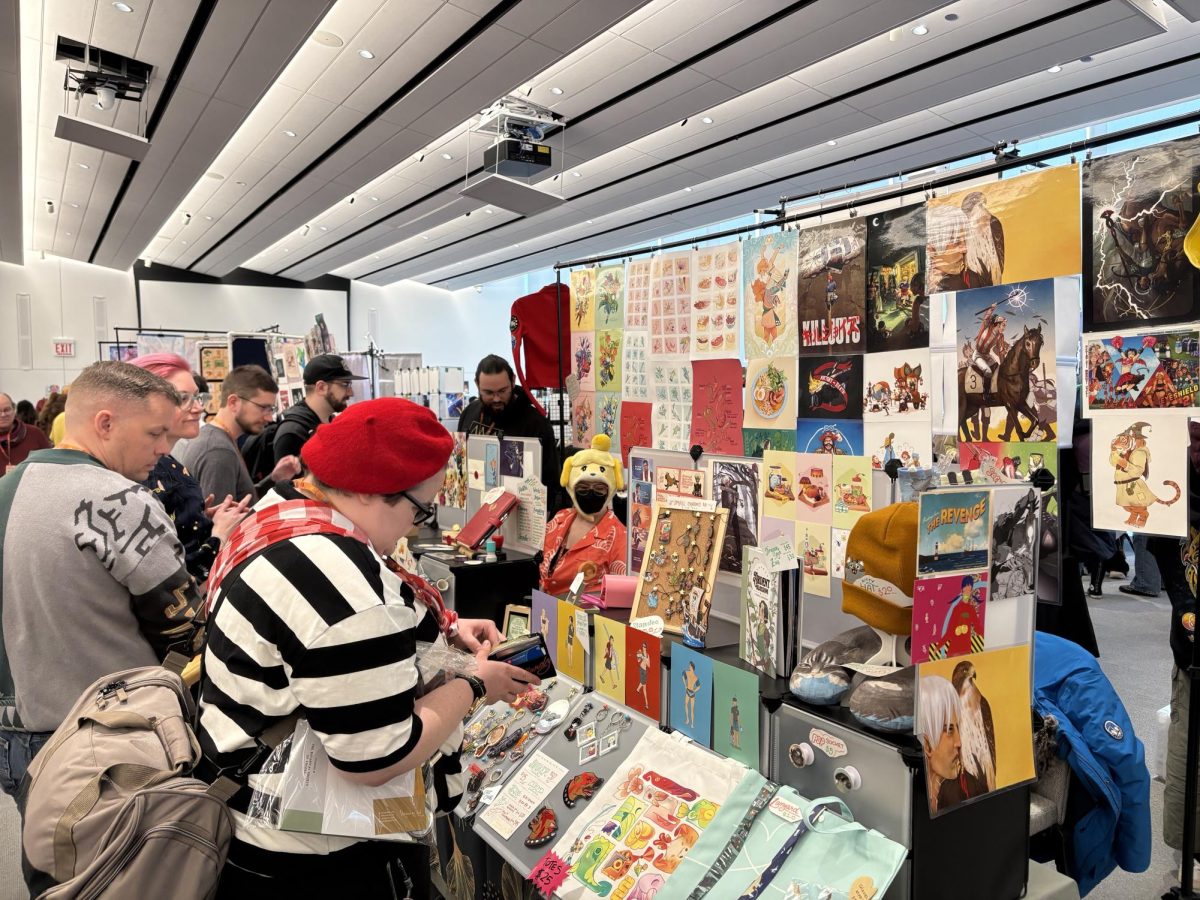
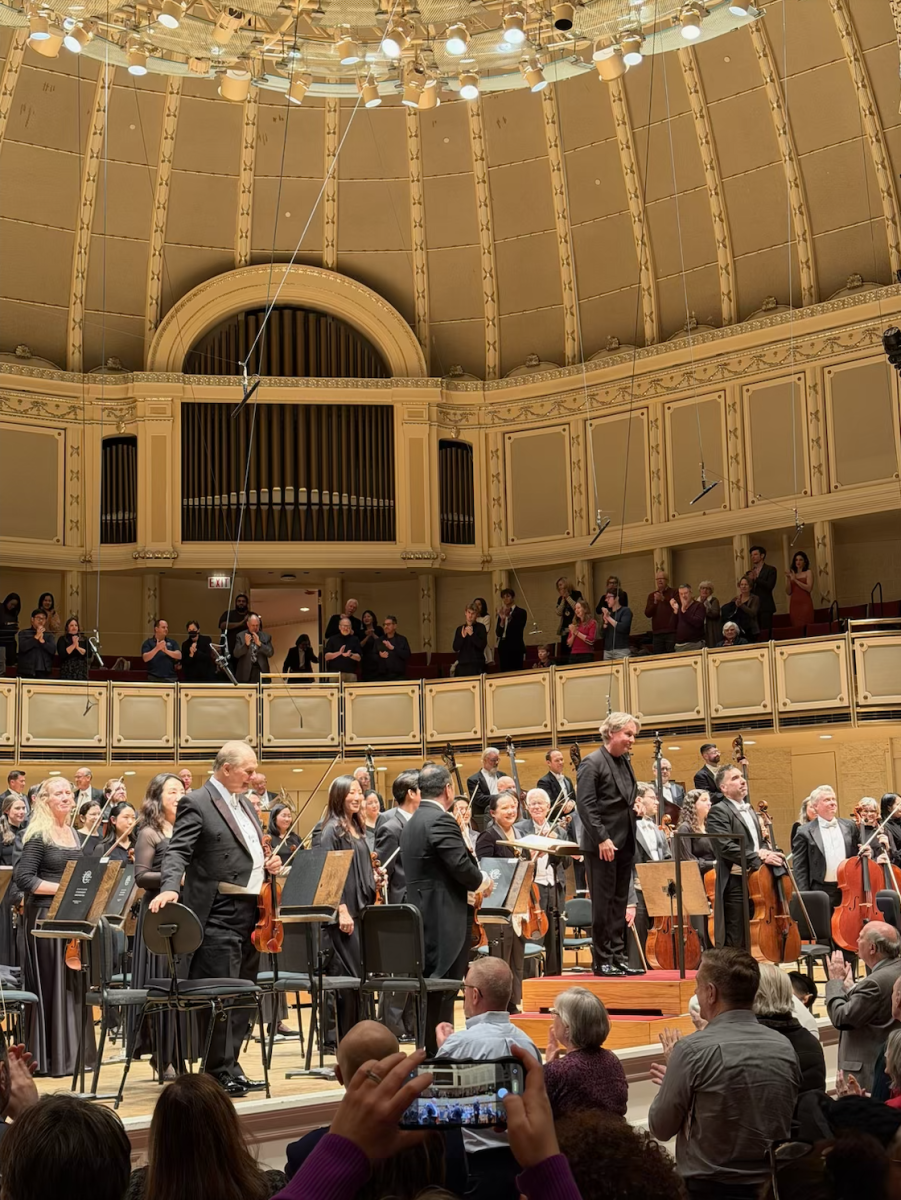
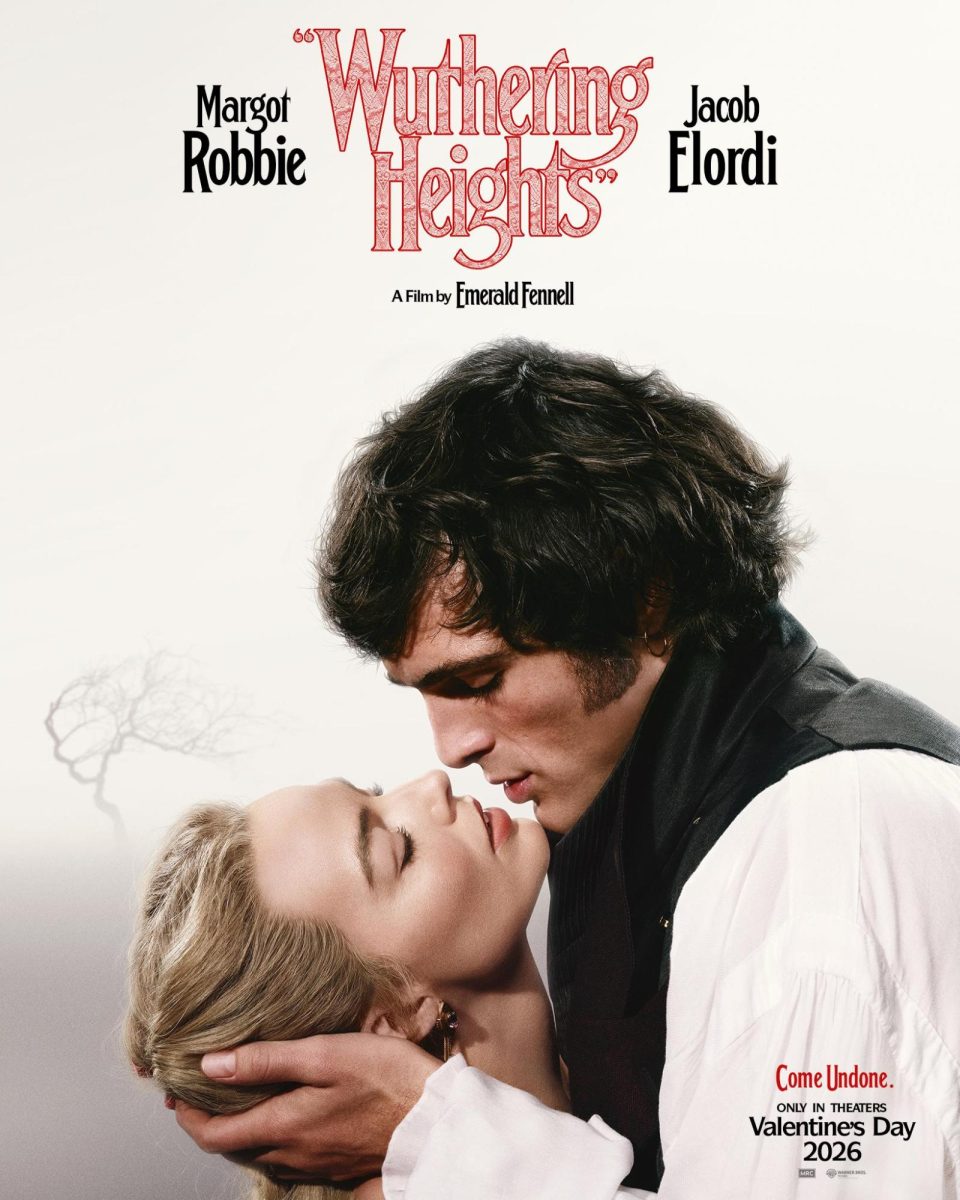

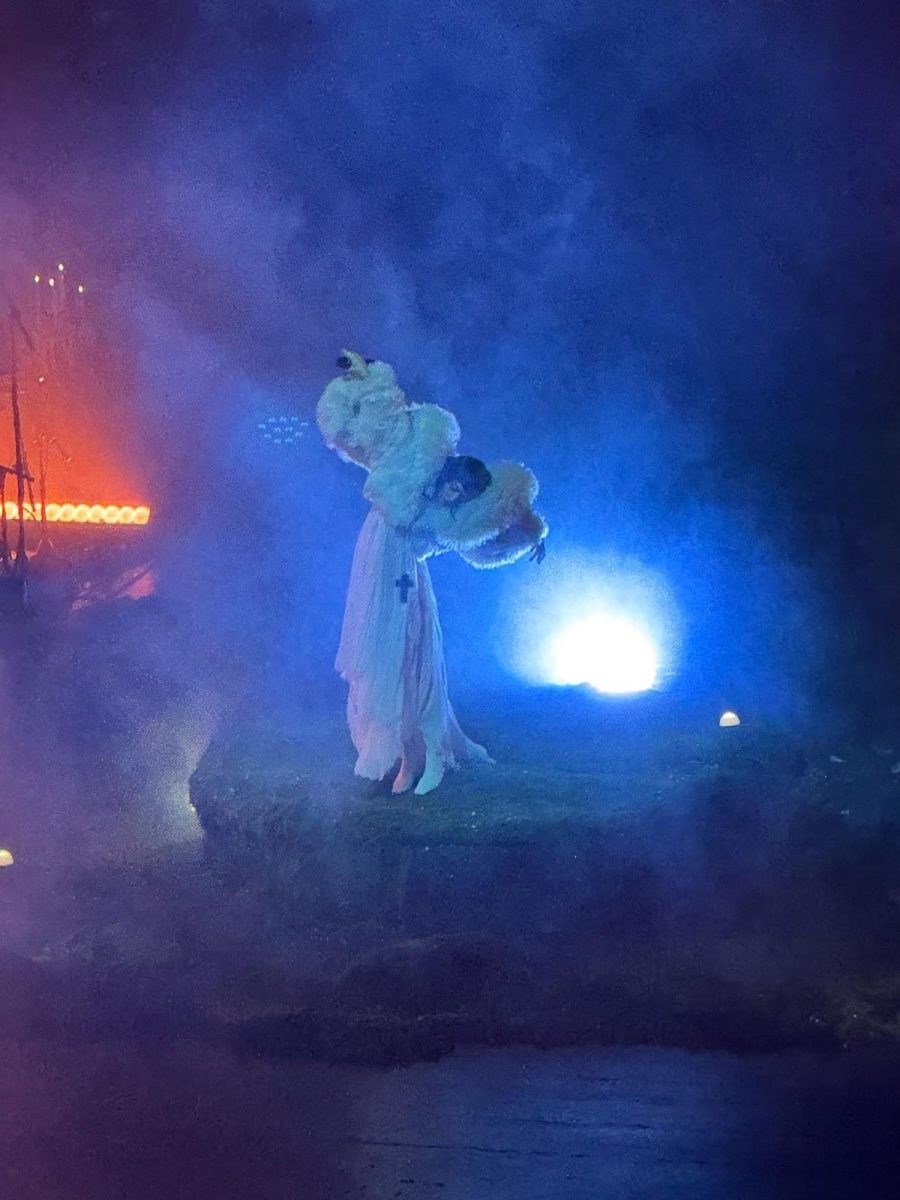
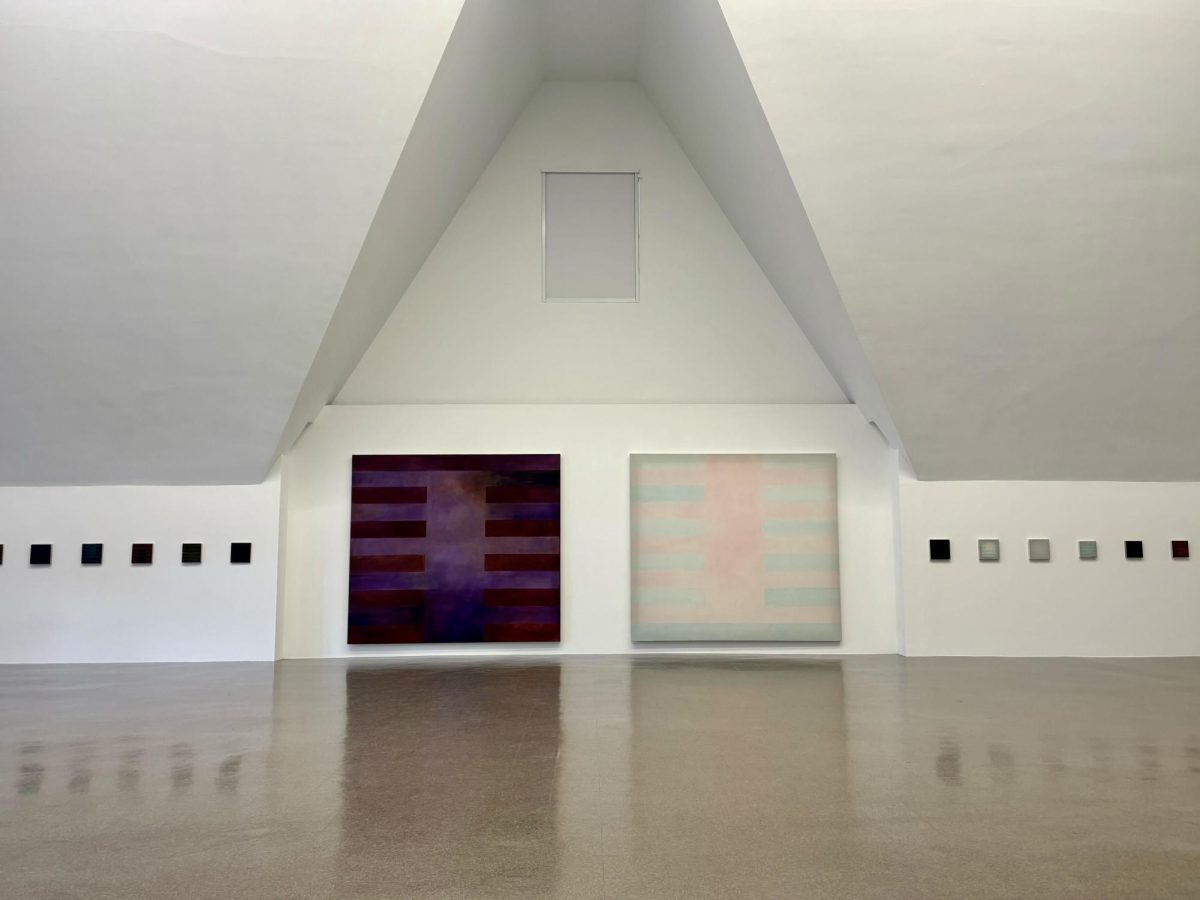
David A. Lopez III / May 30, 2025 at 11:45 am
I wouldn’t mind having a party in there with you